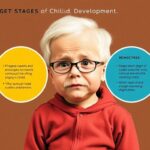The end of a romantic relationship is often described as one of the most challenging emotional experiences a person can go through. The psychology of breakups dives deep into the intricate feelings and behaviors that follow the dissolution of a relationship. Why do breakups hurt so much? How do our minds process loss and change during this time? Understanding the psychological mechanisms behind breakups can offer valuable insights that help individuals cope and eventually heal. This article will explore the emotional rollercoaster people face during breakups, the stages of grief involved, and the ways to manage the psychological aftermath.
Why Breakups Hurt: The Emotional Impact
When a romantic relationship ends, the pain feels tangible and overwhelming. On a psychological level, breakups trigger the same neurological pathways involved in physical pain. Brain imaging studies show that areas responsible for emotional distress light up in response to romantic rejection, much like when we experience physical injuries. This overlap explains why heartbreak can feel so raw and intense. Our brains form deep bonds during relationships, releasing chemicals like oxytocin and dopamine that enhance feelings of attachment and pleasure. When these bonds are suddenly severed, the brain experiences withdrawal symptoms similar to addiction.
The loss is not just about the partner but also about shared routines, aspirations, and identity. Many people describe feeling like they have lost a part of themselves. This psychological emptiness can lead to symptoms like sadness, anger, anxiety, and even depression. The destabilization caused by a breakup often disrupts daily functioning, affecting concentration, sleep, and appetite, which makes emotional recovery more difficult.
The Role of Attachment Styles
Attachment theory helps explain why some people struggle more after a breakup than others. People develop attachment styles—secure, anxious, avoidant, or disorganized—based on early life experiences with caregivers, and these styles influence how they handle romantic relationships and breakups.
- Secure attachment: Individuals tend to cope better with breakups. They accept the end of the relationship, seek support, and eventually move on.
- Anxious attachment: Those with this style may obsess over the relationship’s end, experience intense longing, and fear abandonment.
- Avoidant attachment: These individuals often suppress their emotions, detach quickly, and avoid discussing their feelings.
- Disorganized attachment: This style combines fear of intimacy with a strong desire for closeness, leading to confusion and emotional turmoil after breakups.
Understanding one’s attachment style can provide useful insights into personal reactions to breakup pain and guide more effective coping strategies.
The Stages of Breakup Grief
Much like the grief process after losing a loved one through death, breakups trigger a complex grieving process. Psychologist Elisabeth Kübler-Ross originally proposed five stages of grief—denial, anger, bargaining, depression, and acceptance—and although these do not linearly apply to every breakup, the model helps frame the typical emotional phases people go through.
| Stage | Description | Common Reactions |
|---|---|---|
| Denial | Difficulty accepting the breakup has occurred. | Ignoring the reality, hoping for reconciliation, or disbelief. |
| Anger | Feelings of resentment and frustration towards the ex-partner or oneself. | Blaming, irritability, emotional outbursts. |
| Bargaining | Attempting to negotiate or find ways to reverse the breakup. | Making promises, “what if” thinking, revisiting memories. |
| Depression | Profound sadness, withdrawal, and low motivation. | Feeling hopeless, crying, loss of interest in usual activities. |
| Acceptance | Coming to terms with the breakup and moving forward. | Emotional calm, planning for the future, self-reflection. |
It’s important to acknowledge that people may revisit these stages multiple times, and some stages can overlap. The intensity and duration vary widely depending on the individual and the relationship’s significance.
Common Psychological Reactions to Breakups
Alongside the stages of grief, several psychological reactions arise, directly impacting how one processes the breakup:
- Rumination: Continuously thinking about why the breakup happened or what could have been done differently.
- Identity crisis: Questioning self-worth or identity outside the relationship.
- Loss of trust: Experiencing difficulty trusting others in future relationships.
- Loneliness: Feeling isolated due to the absence of the partner’s companionship.
These reactions highlight the importance of emotional support during this vulnerable period.
Breaking the Cycle: Effective Coping Strategies
Navigating the emotional aftermath of a breakup is far from easy, but there are practical steps to ease the pain and regain emotional balance. Here are some psychologically informed strategies:
Embrace Emotional Authenticity
Allow yourself to feel the full range of emotions without judgment. Bottling up sadness or anger can prolong distress. Journaling or talking with trusted friends can facilitate healthy emotional expression.
Establish New Routines
Breakups disrupt daily life patterns. Creating new routines helps rebuild a sense of normalcy and independence. Whether it’s joining a class, starting a hobby, or exercising, engaging in activities stimulates positive feelings.
Limit Contact and Social Media Exposure
Constantly checking an ex-partner’s social media or staying in contact can trigger setbacks in recovery. Setting boundaries aids the healing process by minimizing reminders that spark emotional turmoil.
Seek Social Support
Reaching out to family, friends, or support groups offers emotional reassurance and combats feelings of loneliness. Alternatively, professional counseling provides a safe space to explore complex feelings with guidance.
Practice Self-Compassion
In the aftermath of a breakup, people often blame themselves harshly. Practicing self-compassion involves treating yourself with kindness and recognizing that suffering is a common human experience.
The Long-Term Psychological Effects

While the acute pain of a breakup often diminishes over time, some psychological consequences can persist and influence future relationships:
- Attachment insecurity: Repeated breakups or traumatic relationship experiences can deepen insecurities, complicating new attachments.
- Fear of intimacy: The prospect of vulnerability may evoke avoidance behaviors to prevent future emotional hurt.
- Personal growth: Many individuals report enhanced self-awareness, better emotional regulation, and improved relationship skills post-breakup.
Not all effects are negative—breakups can catalyze profound personal development when approached constructively.
When to Seek Professional Help
Most people recover from breakups through natural psychological adjustment and social support. However, if symptoms like deep depression, excessive anxiety, or suicidal thoughts persist beyond several weeks, it’s critical to seek counseling. Therapy can help process trauma, identify harmful patterns, and foster resilience.
Breaking Up with Yourself: Understanding Self-Identity After the Split

One of the lesser-discussed aspects of breakup psychology involves how the event shakes personal identity. While in relationships, people often define themselves in relation to their partner—the “we” mentality. After the breakup, reconstructing a coherent self-concept independent of the ex is necessary.
This process involves:
- Rediscovering personal goals and values.
- Rebuilding confidence and self-esteem.
- Learning to enjoy solitude and self-reflection.
Rediscovering who you are as an individual not only supports emotional healing but lays the foundation for healthier relationships in the future.
The Science of Rebound Relationships
In an effort to quickly escape heartbreak, some jump headfirst into new relationships, called rebound relationships. Psychologically, rebounds serve as a distraction from emotional pain, offer validation, and temporarily boost self-worth.
However, rebound relationships often face challenges:
- Unresolved feelings towards the ex interfere with new connection.
- Expectations tend to be unrealistic or too idealized.
- Closing the previous chapter prematurely can delay emotional healing.
While rebounds aren’t inherently bad, understanding their psychological dynamics helps individuals make conscious choices about relationship readiness.
How Culture Shapes the Psychology of Breakups

Cultural background significantly influences how people experience and express breakup emotions. In more collectivistic societies, where family and community ties are emphasized, breakups may involve broader social repercussions and communal involvement, affecting the grieving process. Individualistic cultures, on the other hand, often stress personal independence, sometimes encouraging quicker emotional distancing.
Cultural norms also shape attitudes towards dating, emotional expression, and recovery, meaning the psychology of breakups is never quite universal but culturally contextual.
Common Myths About Breakup Psychology
There are widespread misconceptions about breakups that can hinder recovery or make the process more painful:
- Myth: One must get over a breakup quickly to be healthy.
Reality: Healing is a personalized process and varies in length for everyone. - Myth: Staying friends with an ex is always a good idea.
Reality: For many, maintaining contact interferes with emotional closure. - Myth: The pain means the relationship was perfect or meant to be.
Reality: Emotional pain reflects attachment bonds, not necessarily the quality of the relationship.
Dispelling these myths can help individuals approach breakups with a more realistic and compassionate mindset.
Conclusion
The psychology of breakups reveals that the end of a romantic relationship is not merely a social event but a profound emotional upheaval impacting the mind, body, and sense of self. Understanding the complex interplay of attachment, grief, identity reconstruction, and cultural context allows individuals to navigate their breakup experience with greater awareness and compassion. While the pain can feel overwhelming, it is also an opportunity for self-discovery, resilience, and eventual renewal. By embracing emotional authenticity, seeking support, and learning to care for oneself, most people move beyond heartbreak to build healthier relationships with both themselves and others in the future. The journey is not easy, but it is a deeply human part of love’s story.




















